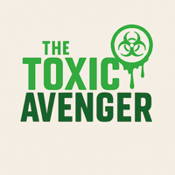
Overview
Synopsis
In the satirical rock musical The Toxic Avenger, the quiet town of Tromaville, New Jersey, is plagued by corporate corruption and toxic waste. Melvin Ferd the Third, an awkward but passionate environmental scientist, vows to clean up his hometown and expose the polluters. However, his crusade makes him a target of the town’s corrupt mayor, who orders her goons to dispose of him. After being dumped into a vat of toxic waste, Melvin is transformed into a hideous yet powerful mutant superhero known as The Toxic Avenger—affectionately nicknamed “Toxie.”
Embracing his new identity, Toxie sets out to rid Tromaville of crime and corruption while navigating his relationship with Sarah, a kind but quirky blind librarian who falls for the man beneath the monster. Along the way, he must battle villains, confront his own insecurities, and ultimately face off against the mayor in a campy, action-packed showdown. The story blends outrageous comedy, environmental themes, and heartfelt romance, all underscored by David Bryan’s high-energy rock score.
Show Information
Context
The Toxic Avenger is a rock musical comedy with music and lyrics by David Bryan (keyboardist of Bon Jovi) and book and lyrics by Joe DiPietro. The show is based on the 1984 cult-classic film produced by Troma Entertainment, a company notorious for its low-budget, campy horror and exploitation movies. The musical adaptation premiered Off-Broadway at New World Stages in 2008, where it quickly gained a following for its outrageous humor, energetic score, and affectionate parody of both superhero
to read the context for Toxic Avenger and to unlock other amazing theatre resources!Plot
Act I
The story opens in Tromaville, New Jersey, a small industrial town overwhelmed by toxic waste, corruption, and crime. Melvin Ferd the Third, an idealistic but awkward environmental scientist, dreams of cleaning up the town and making it safe again. Passionate about ecology but socially inept, Melvin has few allies — except for Sarah, Tromaville’s eccentric blind librarian, who takes an interest in him despite his nerdy demeanor. Sarah’s blunt honesty (and comic misunderstandings
to read the plot for Toxic Avenger and to unlock other amazing theatre resources!Characters
| Name | Part Size | Gender | Vocal Part |
|---|---|---|---|
|
Lead |
Male |
Tenor |
|
|
Lead |
Female |
Soprano, Mezzo-Soprano |
|
|
Lead |
Female |
Alto, Mezzo-Soprano |
|
|
Supporting |
Male |
Tenor, Baritone |
|
|
Supporting |
Male |
Tenor, Baritone |
Songs
Act I
Act II
A song with an asterisk (*) before the title indicates a dance number.
Monologues
Scenes
Key Terms
An anti-hero is a central character who lacks traditional heroic qualities such as morality, bravery, or idealism. Often flawed and complex, anti-heroes appear frequently in modern drama and literature.
Camp is a performance style that celebrates exaggeration, theatricality, and deliberate bad taste for comic or satirical effect. Often marked by irony, flamboyance, and over-the-top characterizations, camp turns the absurd into entertainment. In theatre, it invites audiences to laugh both at and with the performance’s outrageousness.
A cult classic is a play, film, or musical that develops a devoted and passionate following despite (or because of) its unconventional, offbeat, or low-budget qualities. These works often gain popularity through word-of-mouth and fan enthusiasm rather than mainstream success. In drama, cult classics are celebrated for their uniqueness, eccentricity, and enduring subcultural appeal.
Grotesque refers to a style of theatre that blends the bizarre, distorted, or monstrous with comic or sympathetic elements. It often exaggerates physical or emotional traits to provoke both laughter and discomfort in audiences. In drama, the grotesque highlights the strange or unsettling while still revealing human vulnerability and truth.
Parody is a comedic imitation of a style, genre, or work that exaggerates its features for humorous or satirical effect. In theatre, it playfully mocks conventions, characters, or cultural icons while still relying on audience recognition of the original. Parody can both celebrate and critique its subject, often blurring the line between homage and ridicule.
A rock musical is a form of musical theatre that incorporates the rhythms, instrumentation, and energy of rock-and-roll into its score. Emerging in the late 1960s with shows like Hair, rock musicals often bring a contemporary, rebellious edge to the stage. They blend theatrical storytelling with the raw power of popular music to attract younger and more diverse audiences.
Satire is a dramatic style that uses humor, irony, and exaggeration to criticize human behavior, social institutions, or political systems. In theatre, it highlights flaws and hypocrisies through wit and parody, encouraging audiences to laugh while also reflecting on serious issues. Satire can range from lighthearted comedy to biting social commentary, making it both entertaining and thought-provoking.
Videos
Quizzes
Sorry! We do not currently have quizzes for this guide.
Themes, Symbols & Motifs
Themes
**Environmental Activism vs. Corporate
to read about the themes, symbols and motifs from Toxic Avenger and to unlock other amazing theatre resources!Quote Analysis
Sorry! We do not currently have learning modules for this guide.
